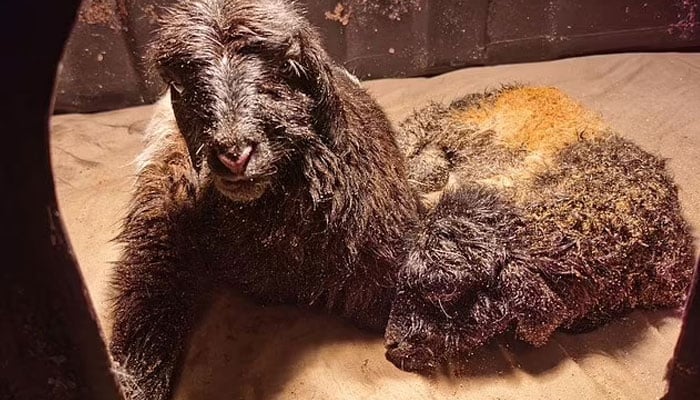China successfully clones Tibetan goats using 'Dolly the sheep' technique
Cloned goats were born through transferring nucleus of an adult cell into a new egg cell
March 03, 2024

China claims a groundbreaking success in cloning the first Tibetan goats using the somatic cell cloning technique, the same method employed for Dolly the sheep in 1997.
The cloned goats, born through transferring the nucleus of an adult cell into a new egg cell, were announced by China Central Television.
The state-owned news channel revealed that the first-born goat, weighing 7.4 pounds, is healthy. The cloning process involves implanting the modified egg into a surrogate mother, resulting in a baby with 100% of the donor's DNA and zero per cent from the surrogate.
The scientists, led by Su Jianmin from Northwest Agriculture and Forestry University, emphasise the goal to "restore and preserve" genetic material from outstanding individuals in the population, particularly prize-winning male goats desirable for breeding. The team aims to use cloning to enhance the breeding industry, increase farmers' income, and make the most of genetic resources.
While details about the second goat remain undisclosed, the long-term plan involves cloning goats with the highest wool production. The breakthrough, occurring in Qinghai Province, utilises the same somatic cell cloning technique employed in the creation of Dolly the sheep.
The cloning process involves removing DNA from a donor cell, replacing the DNA of an egg cell, and implanting it into a surrogate, resulting in a genetically identical offspring. The successful pregnancy rate among 43 surrogate goats reached 58.1%, with 37.2% still pregnant at 120 days.
This achievement follows China's prior success in cloning a monkey using somatic cell nuclear transfer, raising ethical concerns despite its potential applications in medical research. Scientists agree that cloning humans would be unethical, considering the ethical and moral implications associated with such practices.









